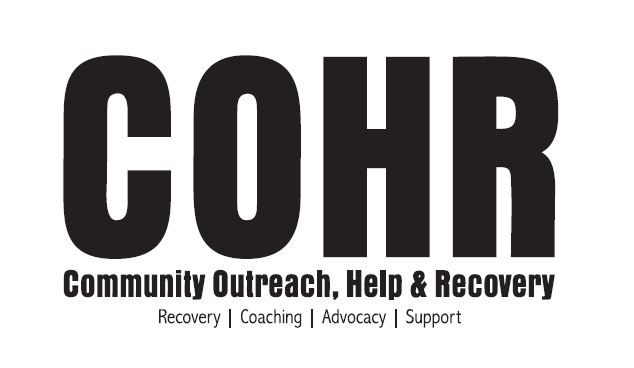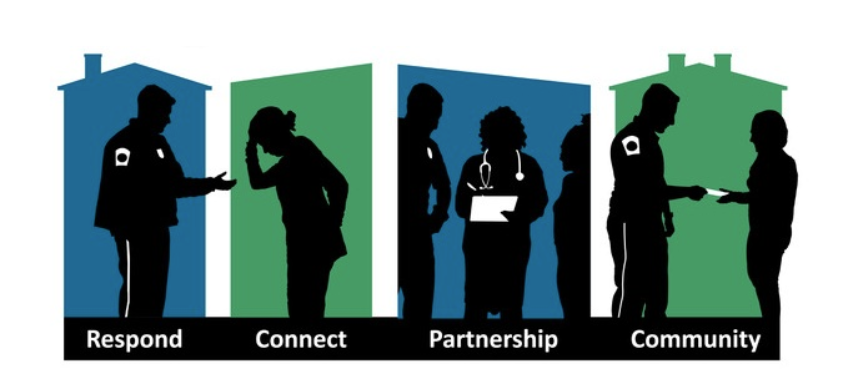
COHR also provides free training classes to residents who wish to assist others as Recovery Coaches. With the help and sponsorship from the City of Somerville and initiatives like the Police Assisted Addiction Recovery Initiative (PAARI) classes like “Pathways to Recovery” and “Mental Health First Aid” have been seen successful year after year. These courses help build an understanding of the individual, family and the community impact of substance abuse, and mental health issues. This has all lead to our new initiative to create a Crisis Intervention Team in surrounding communities in order to have an early action plan for police officers dealing with the increasing calls for service to better communicate and work with people in crisis.
To learn more about the COHR Department, the programs or services they offer, visit their website: metrobostoncit.org.
If you have any questions about the COHR Department contact Patty Contente: This email address is being protected from spambots. You need JavaScript enabled to view it. | 617-625-6600 ext. 7281 or Cheryl Delafano: This email address is being protected from spambots. You need JavaScript enabled to view it. | 617-625-6600 Ext. 7345.
METRO BOSTON CIT TTAC & COHR
The Metro Boston CIT TTAC has worked with communities gathering and actively analyzing empirical data to inform best practice. These best practice approaches have identified strategies for departments to access community supports and increase collaboration with other state funded programs. Examples include increased utilization of Emergency Service Programs, development of HUB and case conference models, identification of grants and other funding sources to support expansion of resources.
SPD has a long history of engagement with stakeholder meetings that evolved into groundbreaking strategy to expand the Jail Diversion Program into a civilian unit – Community Outreach Help and Recovery Unit (COHR). COHR is staffed by Licensed Clinical Social Workers, Mental Health Counselors, Drug and Alcohol Counselors, Recovery Coaches and a Coordinator of Law Enforcement Partnerships who all work to provide in-house resources for residents in addition to assisting officers in informing response. Integrating a public health and public safety response has demonstrated the need for partnerships across the criminal justice system. Courts, probation, and the District Attorney’s office all work together to assess and identify individuals and cases that would be more appropriately diverted to the health care system. In addition to system impact these initiatives are also improving outcomes for individuals and families.
How Does Improv Training Help Train Law Enforcement?
Some of the most rewarding work we have ever experienced is in the public safety and law enforcement arena. And to that end, our involvement with the great work of the Crisis Intervention Team (CIT) program. The CIT program is an innovative community partnership between law enforcement, mental health professionals, addiction specialists, individuals impacted by Behavioral Health (mental illness, developmental disabilities, and addiction), and their advocates. In addition to increasing positive community relationships, CIT training has been proven to reduce the severity and frequency of tragic incidents for both law enforcement and community members. CIT programs equip departments to more efficiently utilize criminal justice resources, increase crisis response time, and increase officer confidence.
The full day of crisis negotiation skills and de-escalation, including realistic role-play, helps cement the knowledge acquired and allows a space for officers and professionals to incorporate what they are learning. -Bob Melly, Director of BizDev
POLICE CIT TRAINING
CIT Training is a 40 hour course comprised around five key themes: Increased Understanding of Behavioral Health, Effective Communication and engagement skills, Verbal and Tactical De-escalation, Navigating Community Resources, and Risk assessment tools. Officers who have completed this training learn to understand commons signs and symptoms of mental illness and recognize them in crisis situations. They are also equipped with the knowledge and skills to guide best practice response to individuals impacted by psychiatric illness, developmental disorders, and co-occurring substance use disorders. Additionally, CIT training is tactically sound. Police training related to officer and public safety is always paramount. Officers who have attended the training have shared how they utilize skills learned in CIT training on the job daily.
The 40 hour course is designed for patrol officers who have regular interactions with community members experiencing a crisis. However, variations of CIT training and its components are available and recommended for all levels of law enforcement: Dispatchers, Officers and Supervisors.
To learn more about Metro Boston CIT TTAC or to sign up for the CIT Training, visit their website: metrobostoncit.org.
If you have any qeustions about Metro Boston CIT TTAC contact Patty Contente: This email address is being protected from spambots. You need JavaScript enabled to view it. | 617-625-6600 Ext. 7281 or Jennifer Korn: This email address is being protected from spambots. You need JavaScript enabled to view it. | 617-625-6600 Ext. 7283.
Related Links:
COHR Program Awarded2020 CIT Appreciation Dinner2019 CIT International Conference


